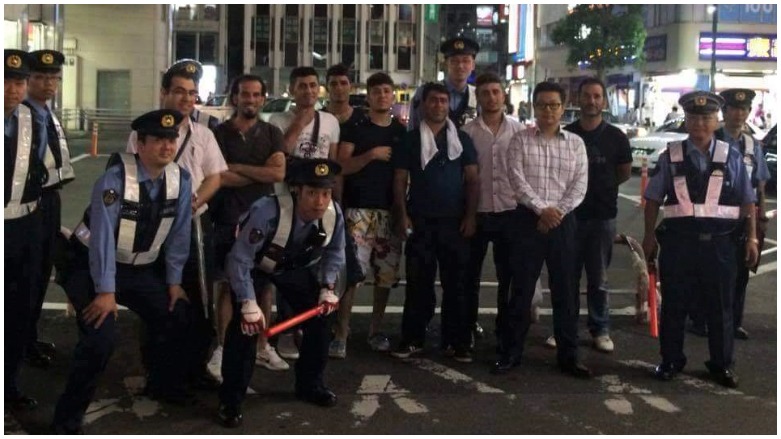Japanese officials reach out to Kurdish immigrant community from Turkey

ERBIL (Kurdistan 24) - A police station in a city outside Tokyo has reached out to the local Kurdish community from Turkey by publishing newspapers for free in the Turkish language.
Japan has a small community of around 2,500 Kurds, most of them since the 1990s when hundreds of Kurds from the Middle Eastern nation fled there.
In this period, a decade of Turkish-led violence marked by extrajudicial killings, disappearances, and the depopulation of thousands of villages in Kurdish-majority provinces of the country during fighting between the military and the Kurdistan Workers’ Party (PKK) led to thousands of Kurds moving abroad.
The largest Kurdish community in Japan lives in the industrial city of Kawaguchi, located north of Tokyo in Saitama Prefecture.
Vakkas Colak, a Kurdish language lecturer at the Tokyo University of Foreign Studies and Secretary General of the Japan-Kurdish Cultural Association, told Kurdistan 24 on Wednesday that the free monthly newspaper published by the local police in Kawaguchi will also eventually be published in Kurdish.
Read More: Turkey protests Kurdish language classes at Japanese University
He added that Kawaguchi is one of the Japanese industrial cities with the biggest population of foreign residents, including people from China, Korea, Vietnam, Nepal, and the Philippines. As a result, the local Japanese police in the town decided to create a free newspaper in different languages to integrate them into Japanese society.
According to the Kyodo news agency, the police station started to distribute free monthly newspapers in English and Chinese in 2017. One year later, they also started to distribute the newspaper in Turkish.
“The police asked me to help with the translation. They also have an English, Japanese and Chinese version,” Colak said. “There are around 1,500 to 2,000 Kurds (from Turkey) that live in this region.”
“The education language in Turkey is Turkish. So, we first made it in Turkish, but we are preparing it in the Kurdish language, also.”
“We, the Japan-Kurdish Cultural Association, did all the cooperation with the local authorities and police. We even sometimes help with making joint patrol in the city to improve the Kurdish image.”
“We believe it would be reassuring (for them) to see a familiar language in a foreign country,” said Hideaki Konno, a senior officer at the Kawaguchi police station, told Kyodo.
The Japan-Kurdish Cultural Association will also meet the Mayor of Kawaguchi next month to discuss a request by the Mayor of the town to the Japanese Ministry of Justice to give Kurdish refugees work visa permits to work in the town.
“The mayor asked the Ministry of Justice to give provincial release visas with beneficial work permits so they can better provide services to the Kurdish people,” he said. “This is the first time that some official in Japan to ask the government to give this to the Kurdish people.”
He added it’s quite difficult for refugees to work without a work permit in Japan. “So if they don’t have permissions, even the city or local government cannot do anything for them.”
“Next month we will meet and ask for more assistance and cooperation with the Kurdish community.”
Editing by John J. Catherine
